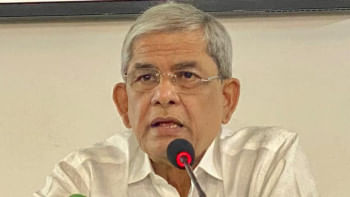‘The smell of death is still everywhere’

April 3, 1971
BRITONS TELL OF KILLING
Some of the 102 Britons who were evacuated to Singapore by air yesterday from East Pakistan revealed today the fighting and carnage they had seen.
"Each day I could see fresh groups of bodies piled up on the pavements," said one man who had been an employee of the East Pakistani provincial government. "There were men, women, even babies, with bayonet and gunshot wounds. Some appeared to have been crushed.
"The deaths were all at the hands of troops from West Pakistan," he said. "There was fear the bodies would pollute the water supply."
There was shooting "every night, up to the time I left," the Briton declared. "The smell of death is still everywhere, and every night there are fires on the skyline." [New York Times, April 04, 1971]
UNITY AT GUNPOINT
In a report titled 'Unity at gunpoint' The Economist wrote today: "East Pakistan's Sheikh Mujib looks a loser today, but it is more likely that President Yahya has chosen the road that leads to a civil war he cannot win."
It further commented: "But though he may have pacified the main cities, shattered the Awami leadership and cowed many Bengalis into submissiveness, President Yahya's problems are only just beginning. He will find it difficult to police the countryside; much of East Pakistan split by innumerable waterways, is the sort of terrain regular soldiers hate but guerrillas love."
MEMORANDUM TO PRESIDENT NIXON
The US Secretary of State Rogers, in a memorandum to President Nixon, today provided a background to the thinning out of the US presence in East Pakistan. Referring to evacuation of personnel by the UN, the World Bank and various countries including Germany, Japan and Yugoslavia, Rogers shared that a plan had been made to facilitate the departure within the next few days of nonofficial Americans who want to leave, the wives and children of American officials, and some official Americans who are considered non-essential.
As to the present situation, he informed, "Thus far, the Awami League resistance groups have gained little momentum although they control an estimated 75% of the East Pakistan territory. However, over time these resistance elements may be able to mount a large-scale rebellion with possible covert support from Bengali elements in India."
The memorandum ended with the comment, "The key question is whether the events of the last week have made it unlikely - or impossible - for the Government of Pakistan ever to reassert effective political influence over the East."
NO BURMESE OIL
The Burmese government stopped the sale of aviation fuel to Pakistan, Burmese embassy sources said today. The Burmese government took the decision as it did not want to get involved in the internal situation now prevailing in Pakistan. [Hindusthan Standard, April 4, 1971]
Shamsuddoza Sajen is a journalist and researcher. He can be contacted at [email protected]

 For all latest news, follow The Daily Star's Google News channel.
For all latest news, follow The Daily Star's Google News channel. 



Comments